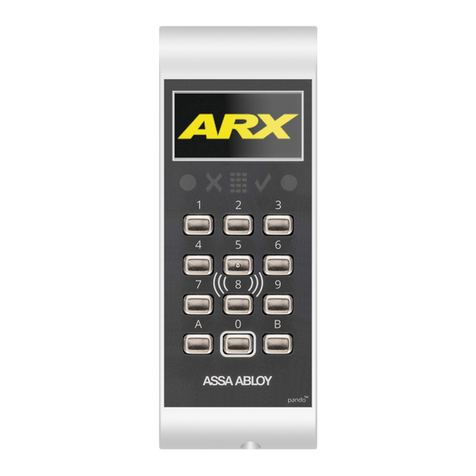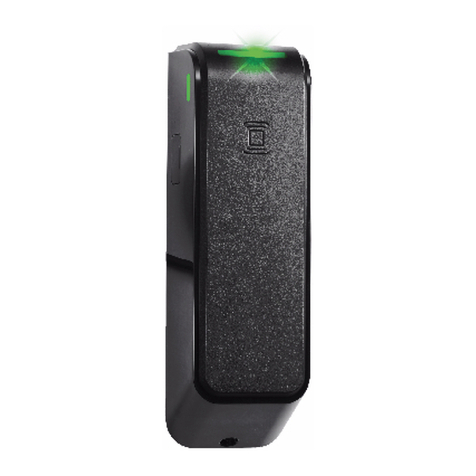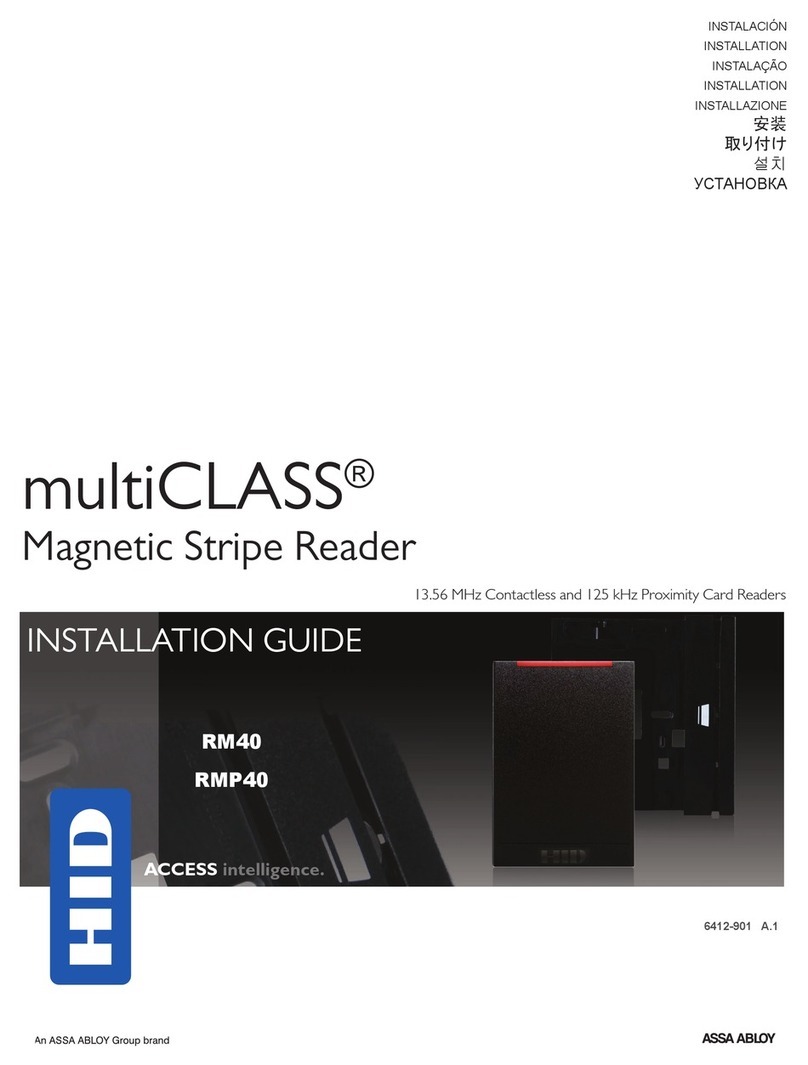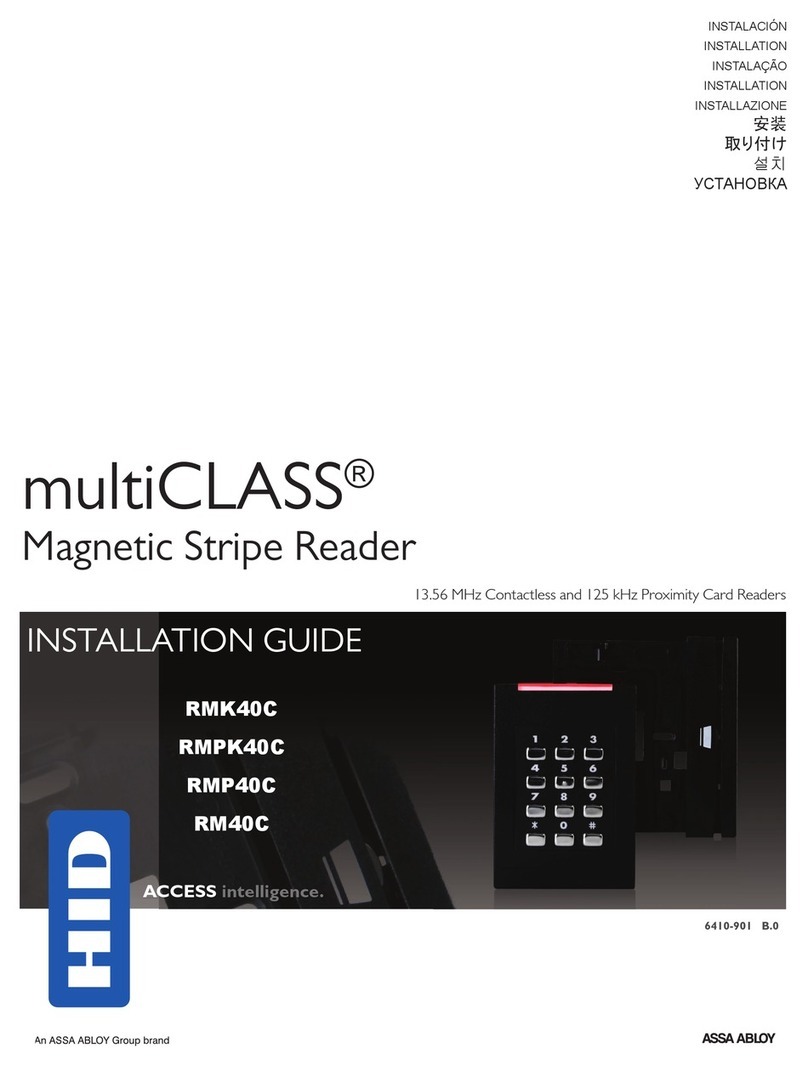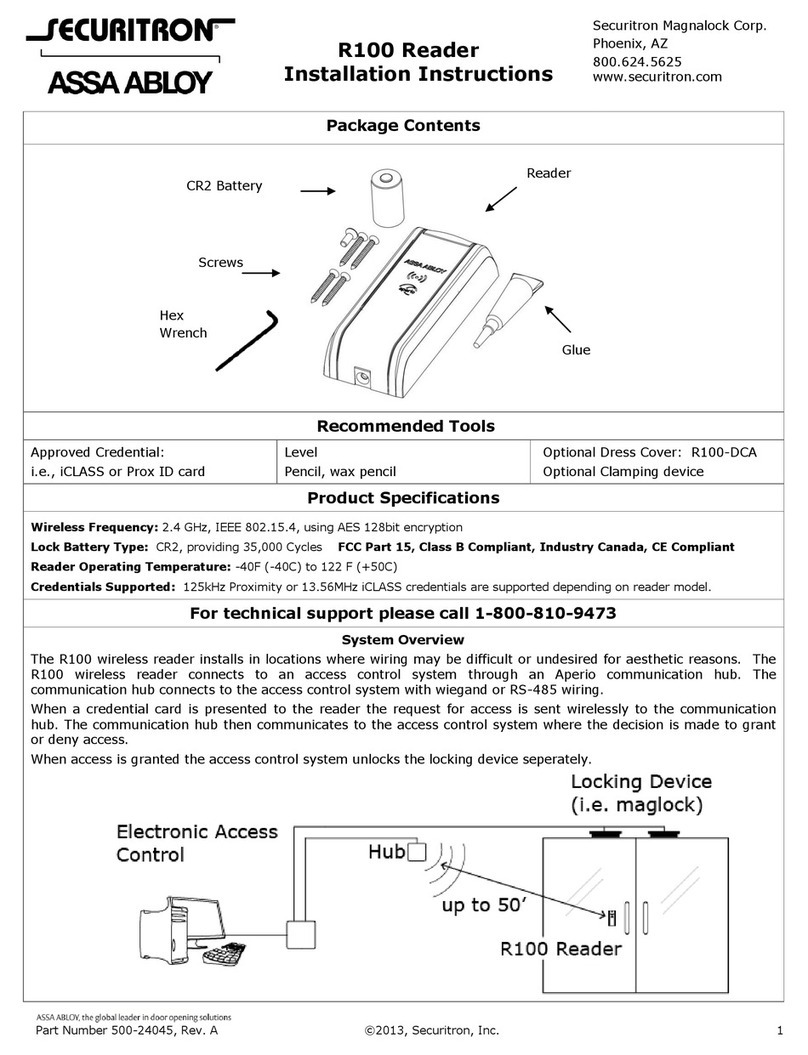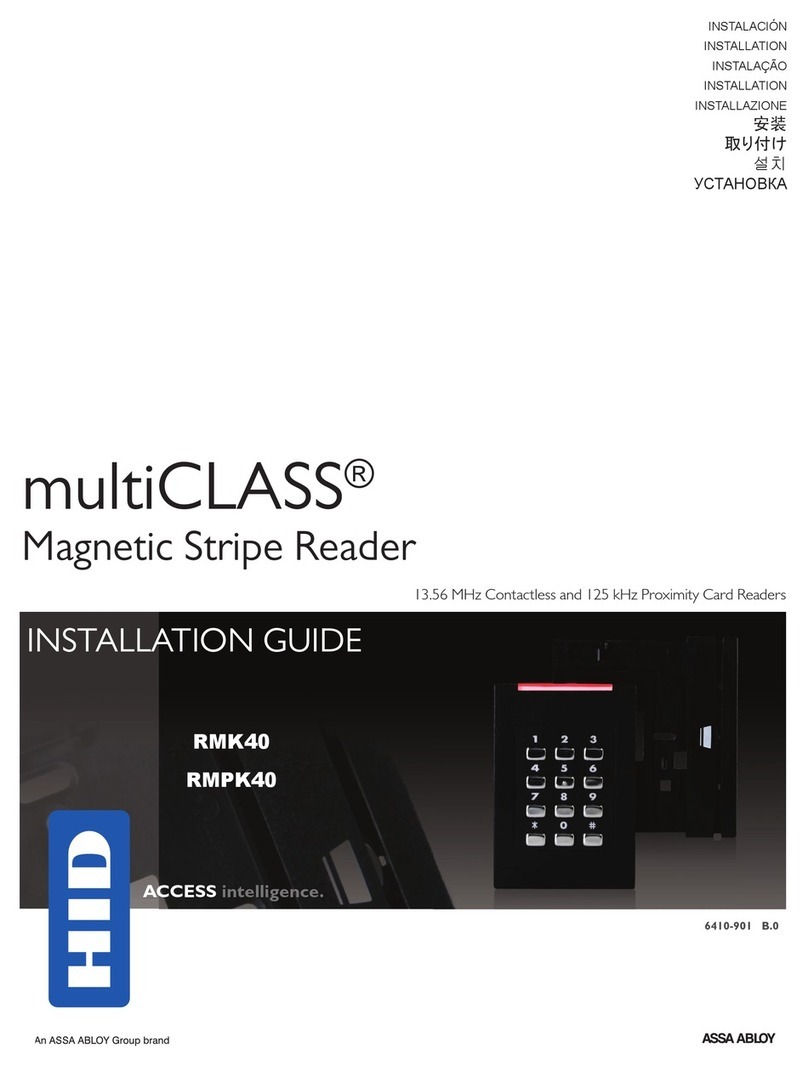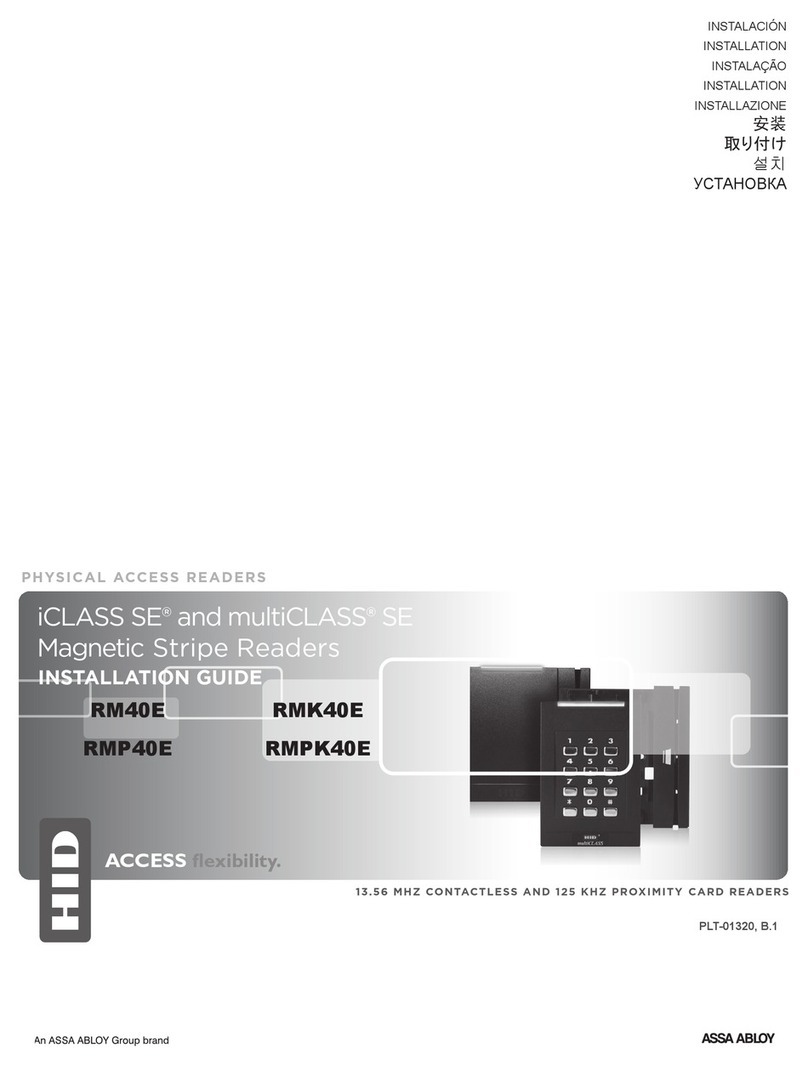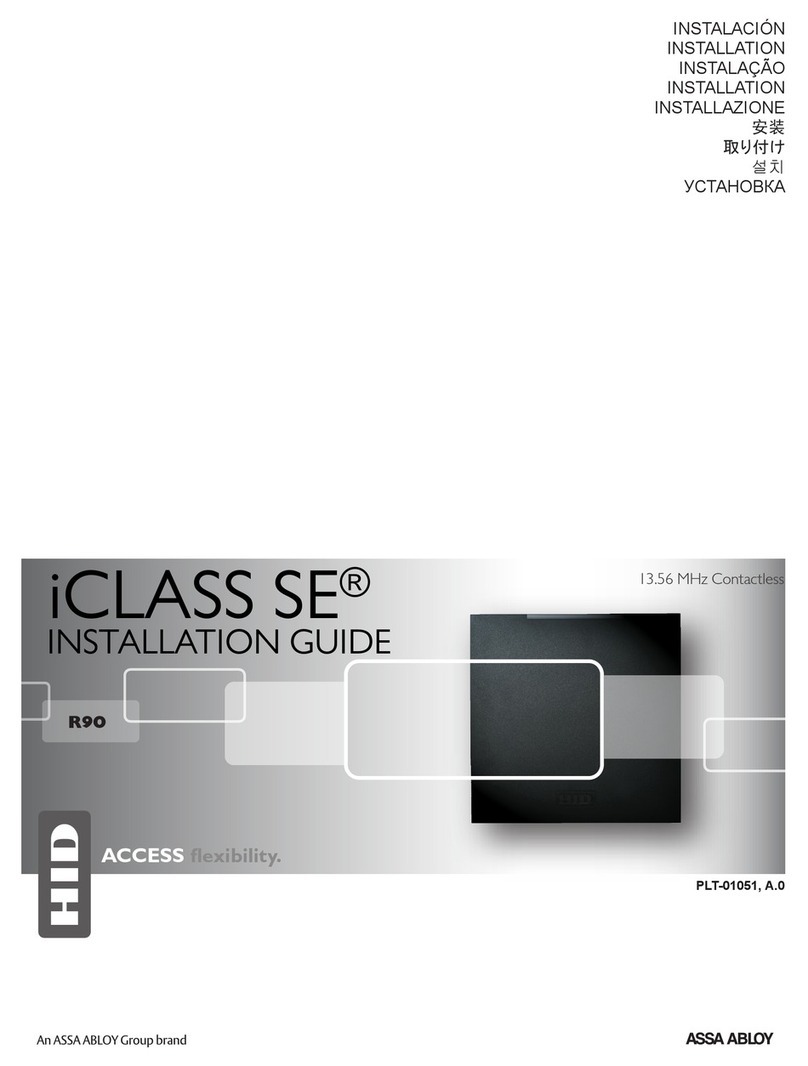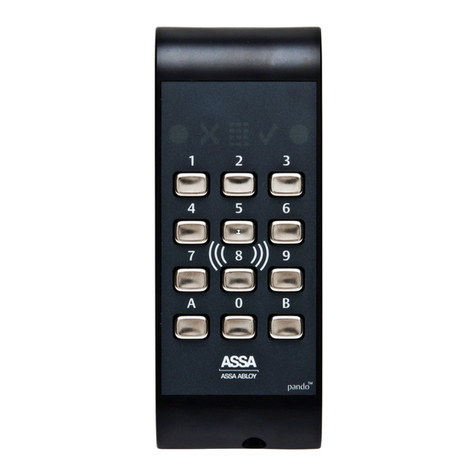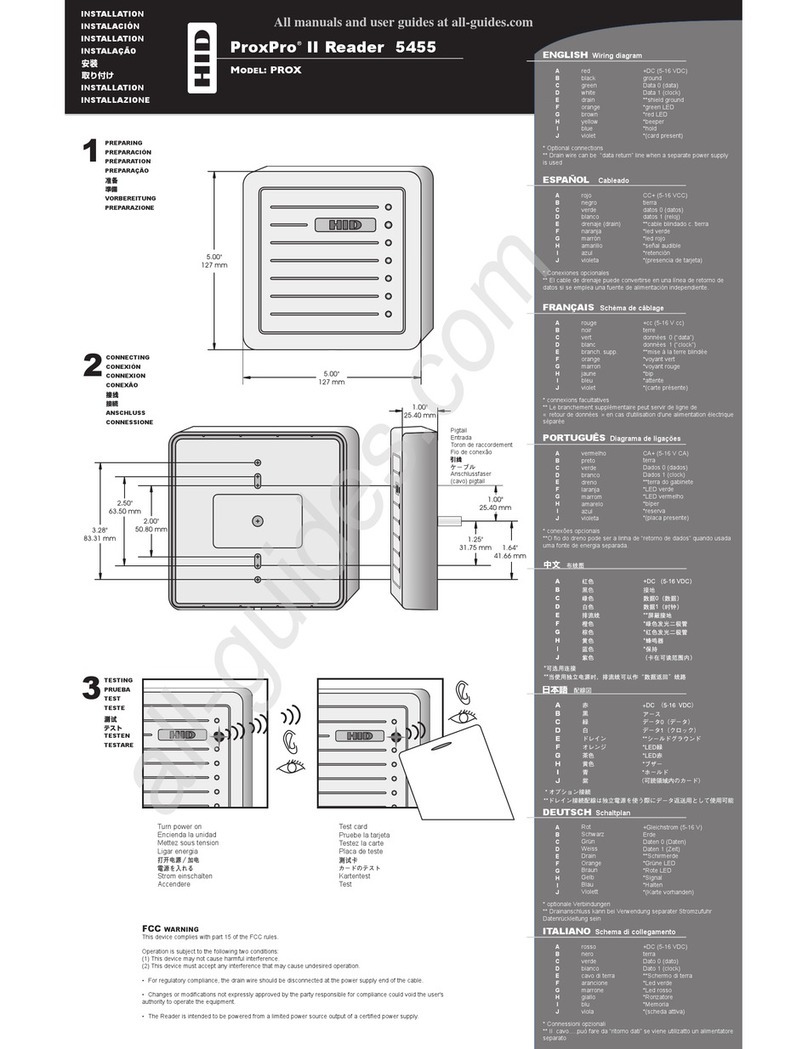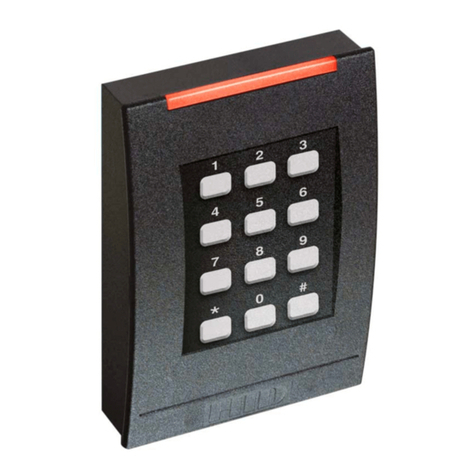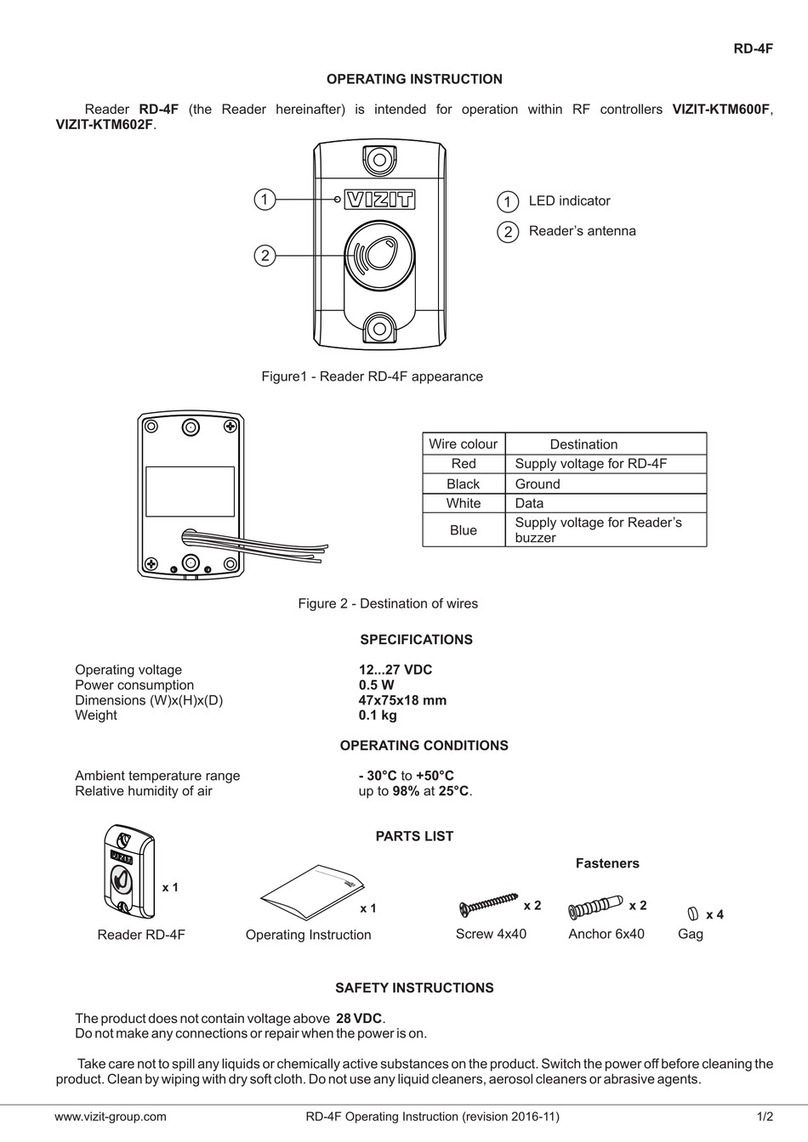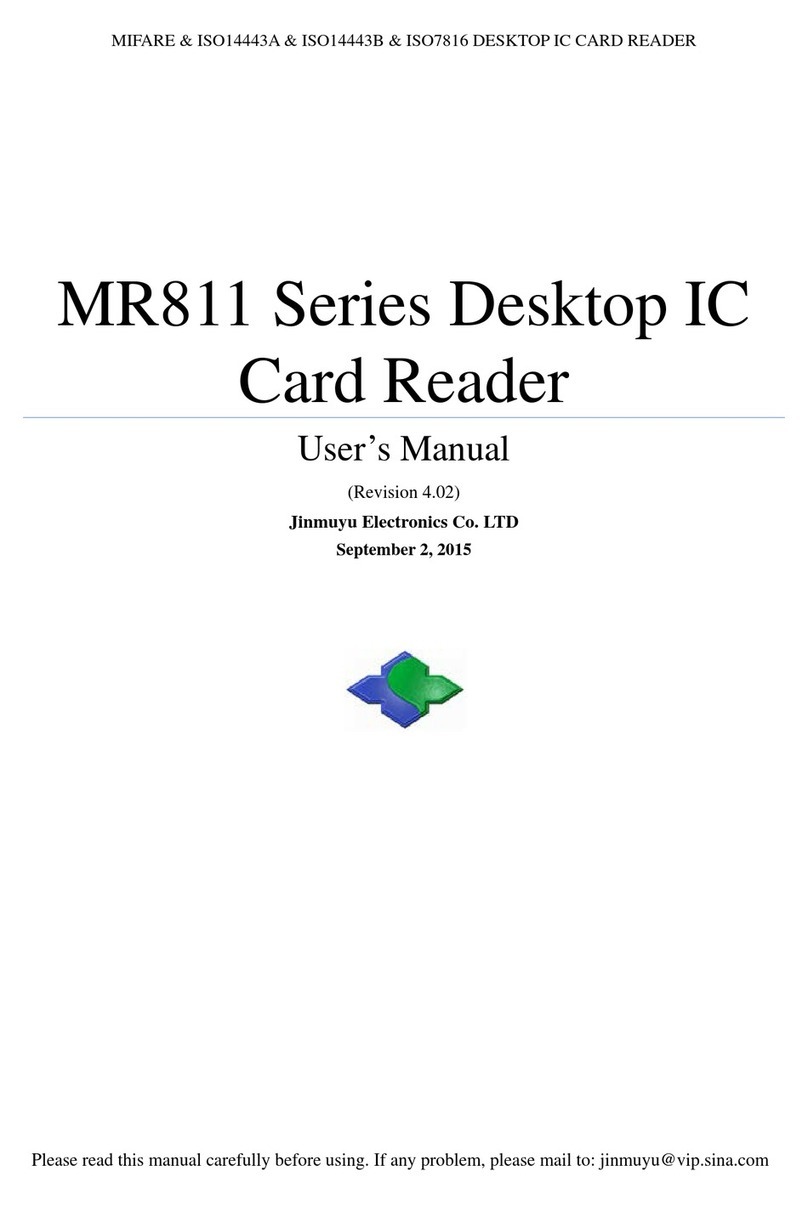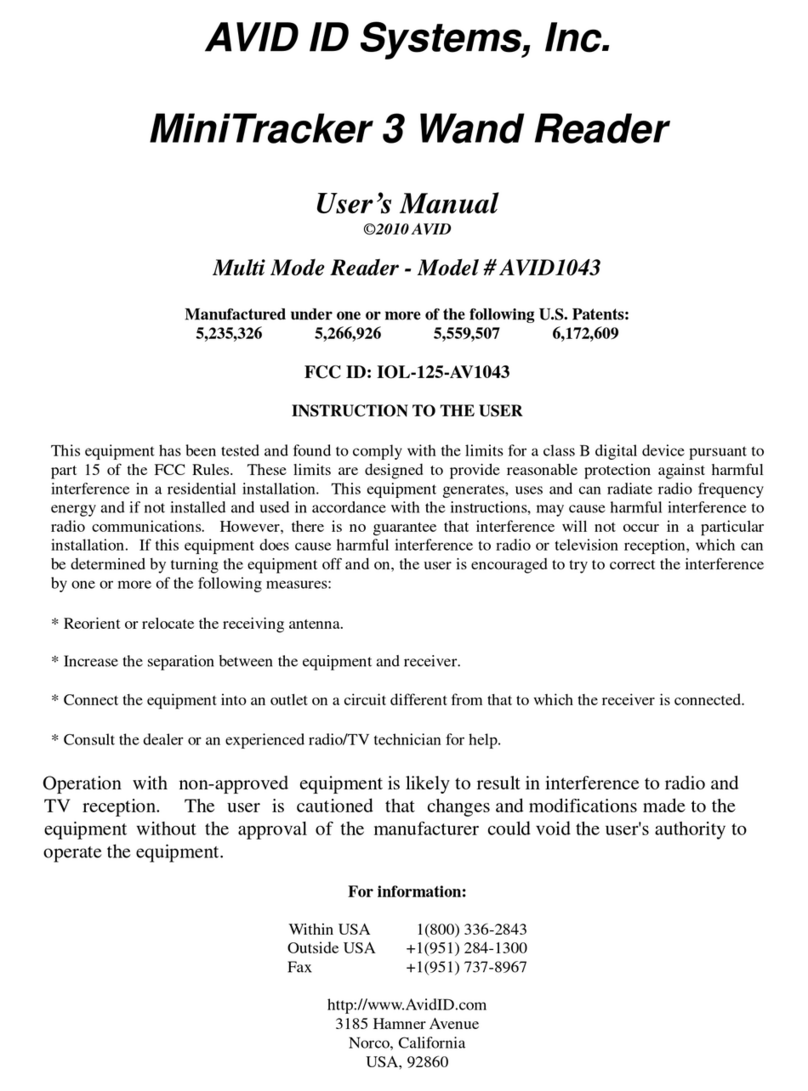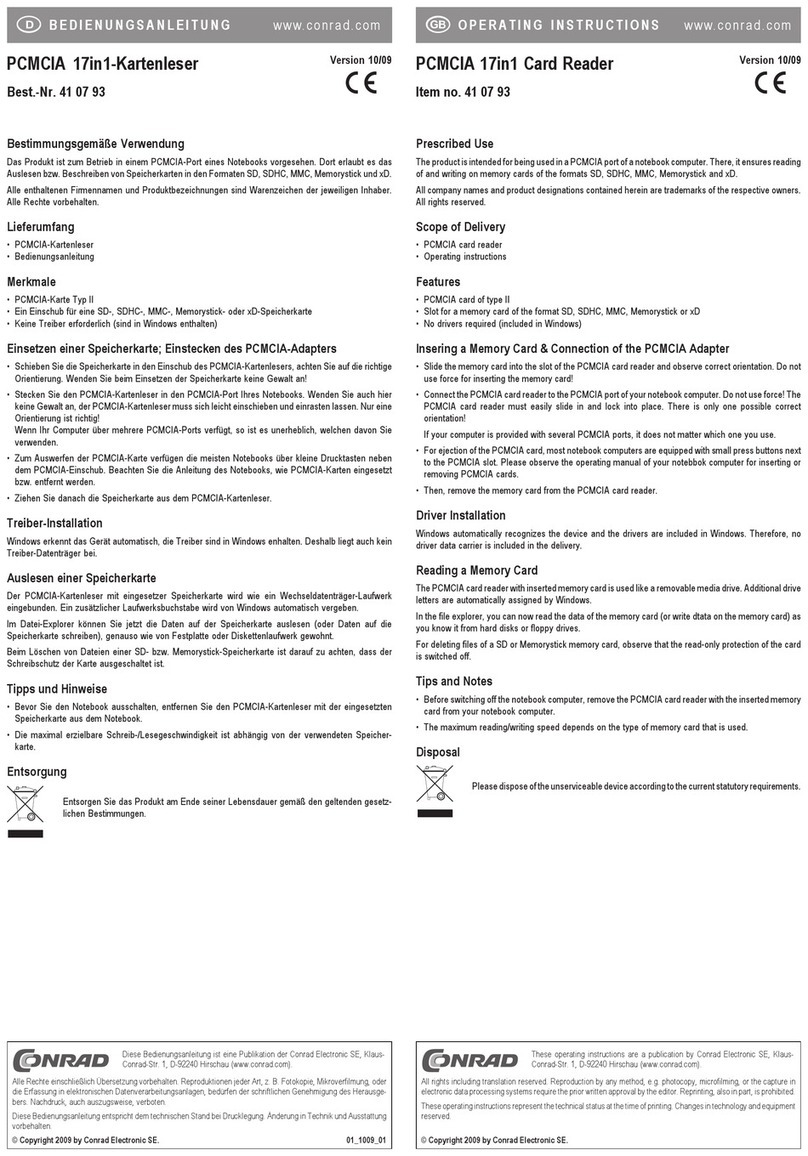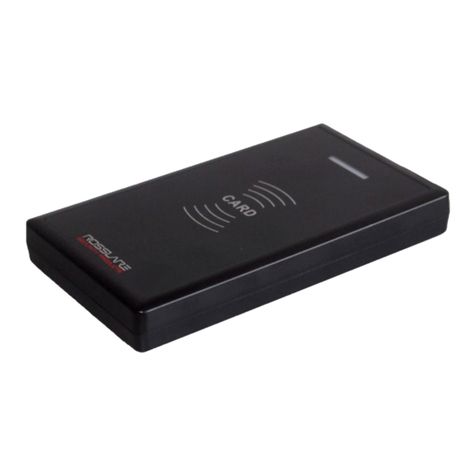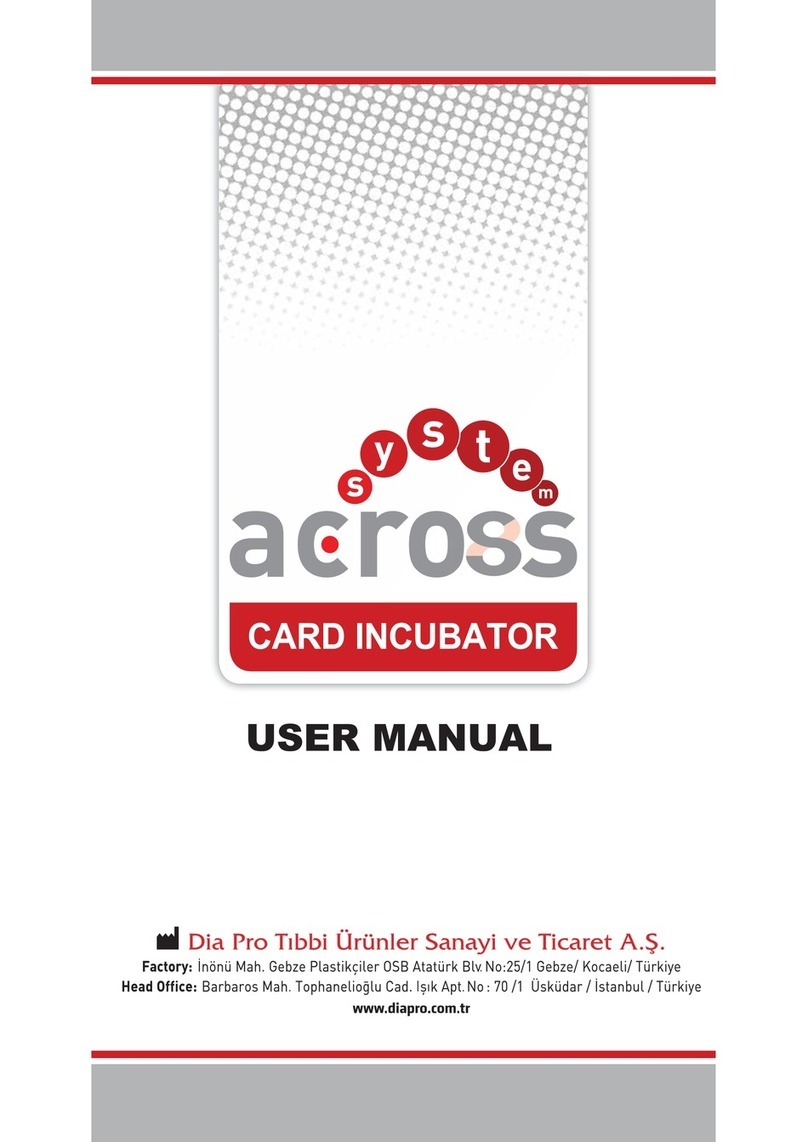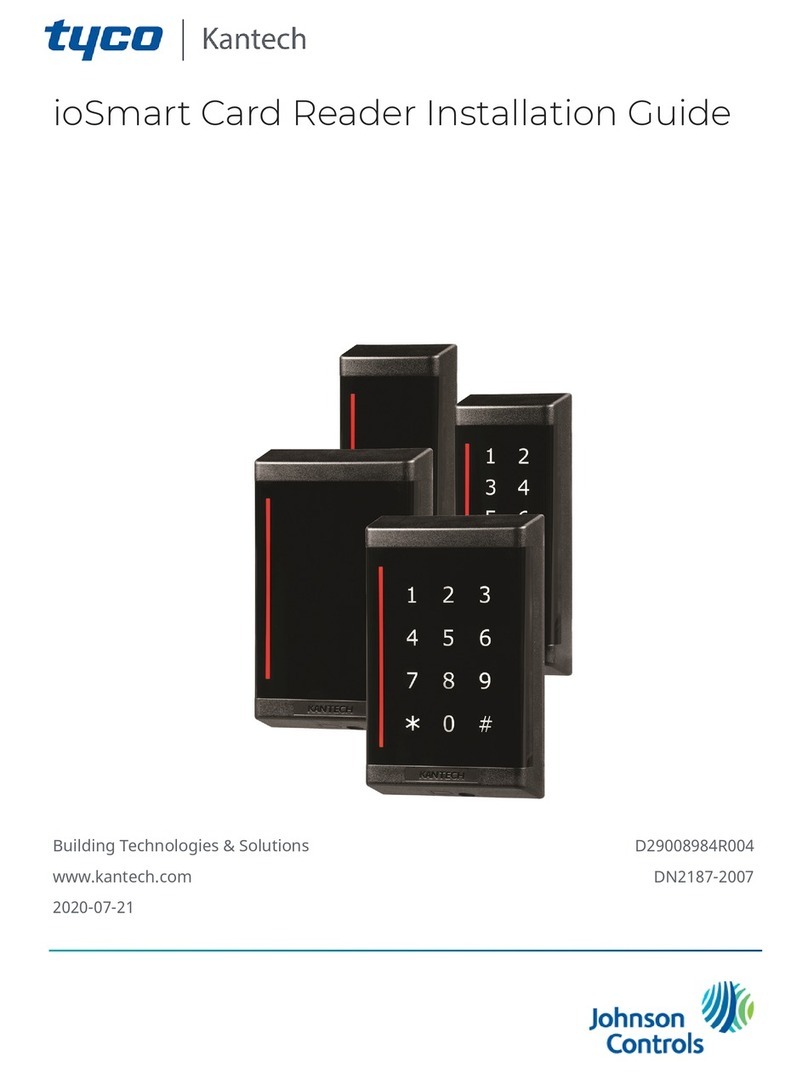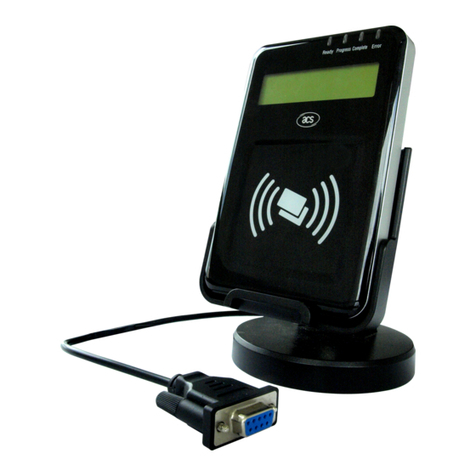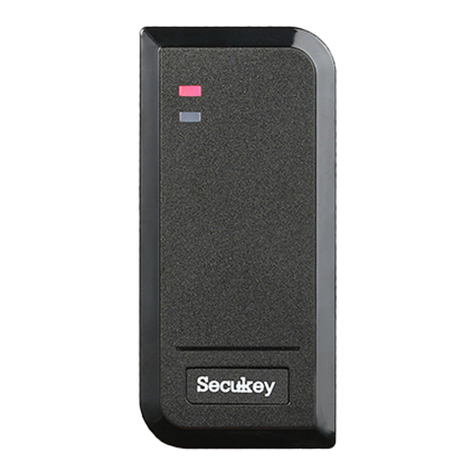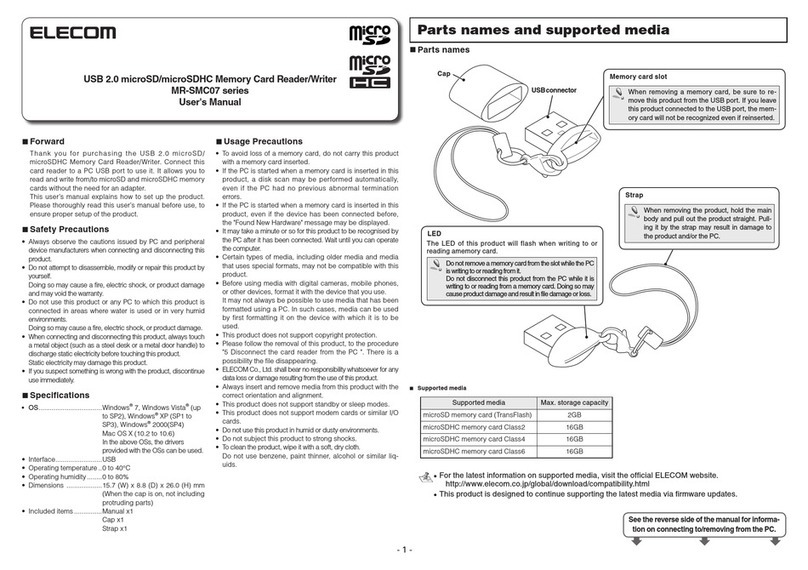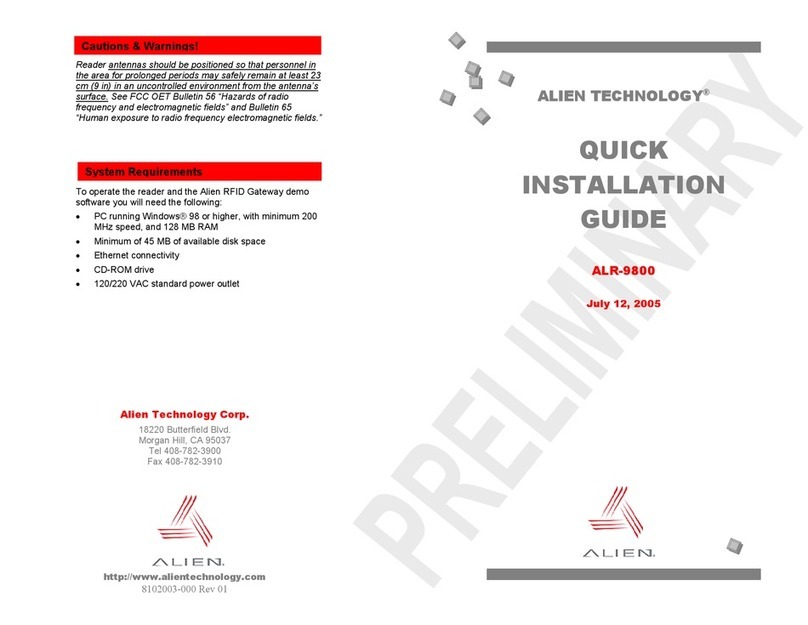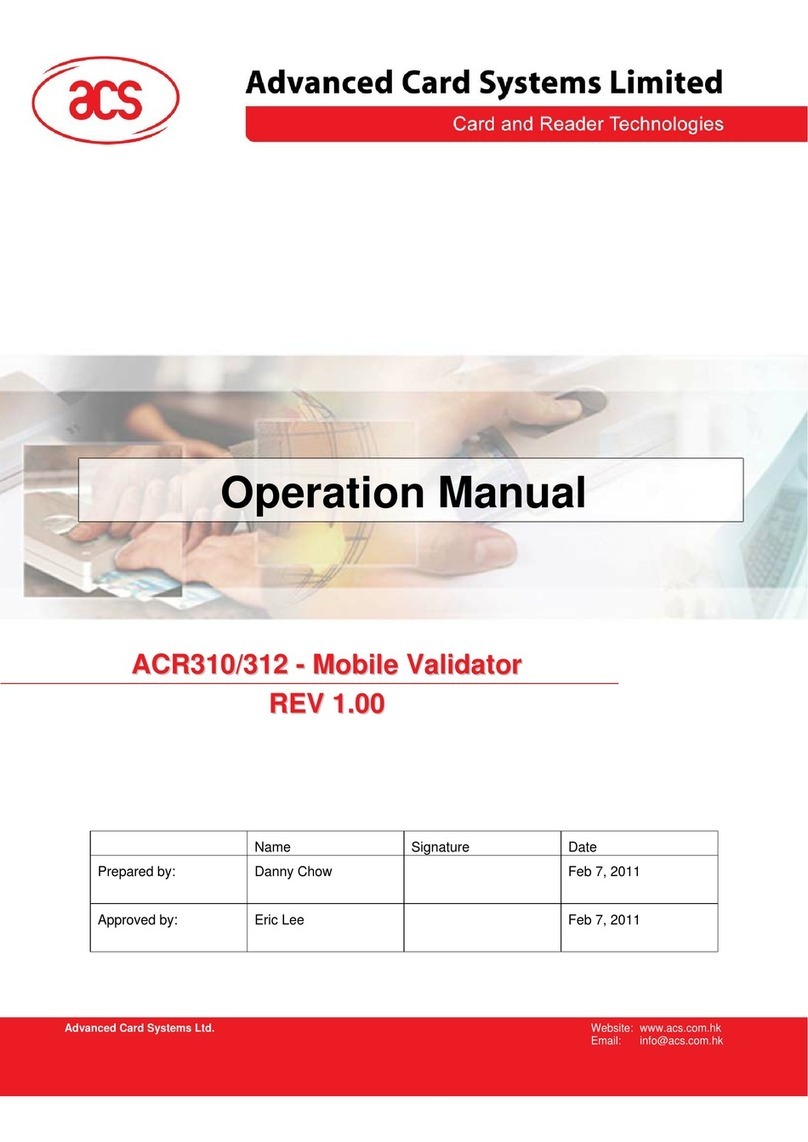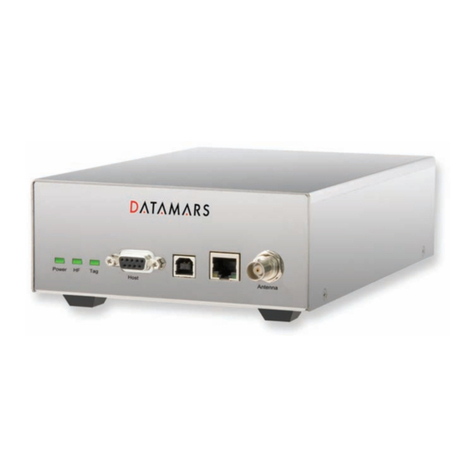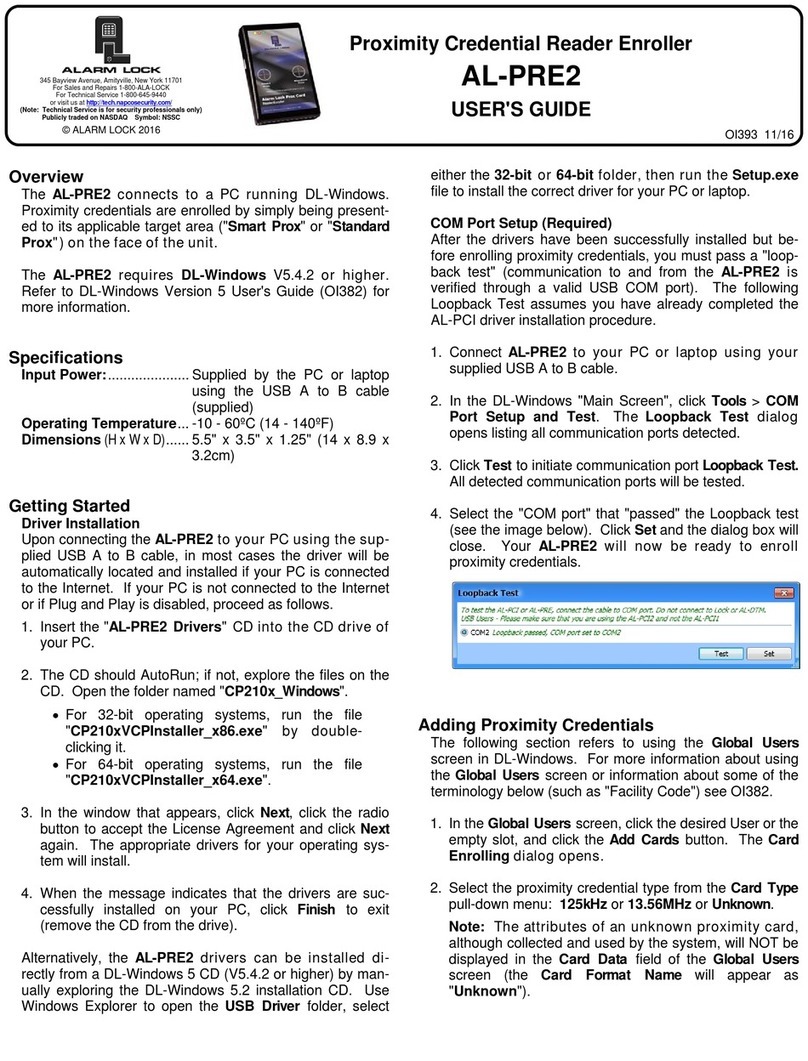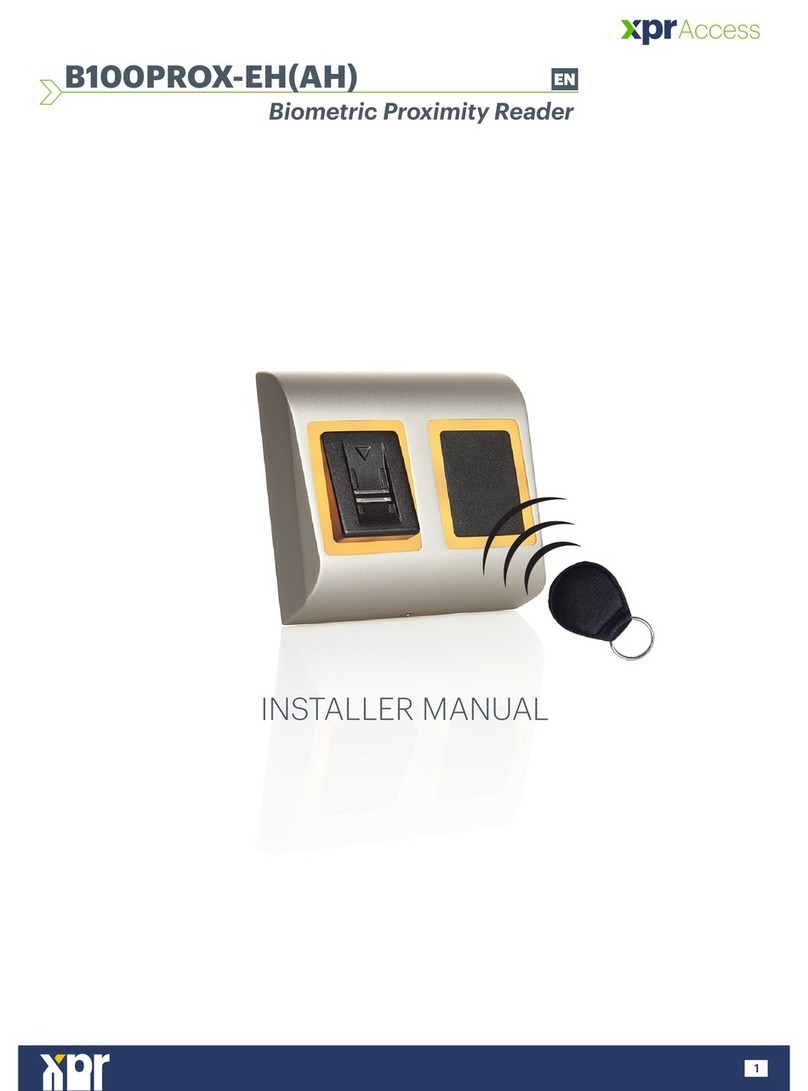
4 of 4
WARNING
FCC Statement
This equipment has been tested and found to comply
with the limits for a class B digital device, pursuant to part
15 of the FCC Rules. These limits are designed to provide
reasonable protection against harmful interference in a
residential installation. This equipment generates, uses,
and can radiate radio frequency energy and if not installed
and used in accordance with the instructions, may cause
harmful interference to radio communications. However,
there is no guarantee that interference will not occur
in a particular installation. If this equipment does cause
harmful interference to radio or television reception,
which can be determined by turning the equipment
off and on, the user is encouraged to try to correct the
interference by one or more of the following measures:
1. Reorient or relocate the receiving antenna.
2. Increase the separation between
the equipment and receiver.
3. Connect the equipment into an outlet on a circuit
different from that to which the receiver is connected.
4. Consult the dealer or an experienced
radio/TV technician for help.
Operation with non-approved equipment is likely to
result in interference to radio and TV reception. The
user is cautioned that changes and modifications
made to the equipment without the approval of
manufacturer could void the user’s authority to
operate this equipment. To comply with FCC and
Industry Canada RF radiation exposure limits for
general population, the module must be installed to
provide a separation distance of at least 20cm from
all persons and must not be colocated or operating in
conjunction with any other antenna or transmitter.
This module is labeled with its own FCC ID and IC
Certification Number. If the FCC ID and IC Certification
Number are not visible when the module is installed inside
another device, then the outside of the device into which
the module is installed must also display a label referring
to the enclosed module. In that case, the final end product
must be labeled in a visible area with the following:
Contains FCC ID: VC3-R100V3
Contains IC: 7160A-R100V3
IC Statement
This device complies with Industry Canada
license-exempt RSS standards(s). Operation is
subject to the following two conditions:
(1) this device may not cause interference, and
(2) this device must accept any interference, including
interference that may cause undesired operation.
Conformité aux normes FCC
Cet équipement a été testé et trouvé conforme aux
limites pour un dispositif numérique de classe B,
conformément à la Partie 15 des règlements de la FCC.
Ces limites sont conçues pour fournir une protection
raisonnable contre les interférences nuisibles dans une
installation résidentielle. Cet équipement génère, utilise
et peut émettre des fréquences radio et, s’il n’est pas
installé et utilisé conformément ment aux instructions
du fabricant, peut causer des interferences nuisibles aux
communications radio. Rien ne garantit cependant que
l’interférence ne se produira pas dans une installation
particulière. Si cet équipement provoque des interférences
nuisibles à la réception radio ou de télévision, qui
peut être déterminé en comparant et en l’éteignant,
l’utilisateur est encouragé à essayer de corriger les
interférence par une ou plusieurs des mesures suivantes:
1. Réorienter ou déplacer l’antenne de réception.
2. Augmenter la distance entre
l’équipement et le récepteur.
3. Branchez l’appareil dans une prise sur un circuit
différent de celui auquel le récepteur est connecté.
4. Consultez votre revendeur ou un technicien
radio / TV pour assistance.Avertissement
Les changements ou modififications à cet appareil sans
expressément approuvée par la partie responsable de
conformité pourraient annuler l’autorité de l’utilisateur
de faire fonctionner cet équipement. L’opération
est soumise aux deux conditions suivantes:
(1) Cet appareil ne doit pas causer
d’interférences nuisibles, et
(2) Cet appareil doit accepter toute interférence
reçue, y compris les interférences susceptibles
de provoquer un fonctionnement indésirable.
Pour se conformer aux limites d’exposition aux
rayonnements RF de la FCC et d’Industrie Canada pour la
population en général, le module doit être installé pour
fournir une distance de séparation d’au moins 20 cm de
toutes les personnes et ne doit pas être localisé ou en
combinaison avec une autre antenne ou émetteur.
Ce module est étiqueté avec son ID FCC et son numéro
de certification IC. Si l’identifiant FCC et le numéro de
certification IC ne sont pas visibles lorsque le module
est installé à l’intérieur d’un autre appareil, l’extérieur
de l’appareil dans lequel le module est installé doit
également afficher une étiquette faisant référence au
module ci-joint. Dans ce cas, le produit final final doit
être étiqueté dans une zone visible avec ce qui suit:
Contient FCC ID: VC3-R100V3
Contient IC ID:7160A-R100V3
Conformité aux normes IC
Cet appareil est confrome avec Industrie Canada
exempt de license RSS standard(s). Son fonctionnement
est souimes aux deux conditions suivantes:
(1) cet appareil ne peut causer d’interférences, et
(2) cet appareil doit accepter toute interference, y
compris des interférences qui peuvent provoquer
un fonctionnement indésirable du périphérique.
Patent pending and/or patent www.assaabloydss.com/patents
Copyright © 2020, Hanchett Entry Systems, Inc., an ASSA
ABLOY Group company. All rights reserved. Reproduction in
whole or in part without the express written permission of
Hanchett Entry Systems, Inc. is prohibited. 3080006.015_4
techsupport.esh@assaabloy.com | 800 626 7590
assaabloyesh.com
10027 S. 51st Street, Ste. 102 Phoenix, AZ 85044 USA
4 of 4
